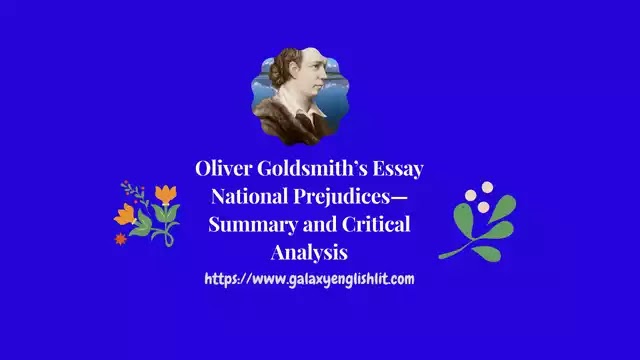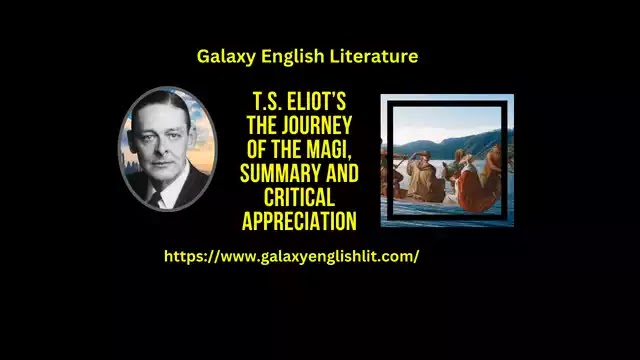Hardy, the Poet of Love:
Thomas Hardy is a remarkable poet of love and of pangs arising from it. His treatment of love is often in the form of reminiscence, and he relives a past moment of charm and pleasure and tries to immortalize that moment in the present. The poet cherishes in his mind the memory of happy bygone days when his wife or beloved was alive. Certain events of his life played a definite role in moulding his treatment of love. Briefly to state, his falling into love with Tryphena which resulted in utter disappointment in his youth offered him the first sad experiences of life. Later, his marriage with Emma was no happy experience at all , and it created a chasm for both until she found release in death in 1912 and Hardy repented for his harsh behaviour towards her.
 |
| Hardy's Treatment of Love in his Poetry |
The Division of His Love Poems:
In fact, love predominates in his poetry as a theme. He is one of the most outstanding poets of love, and has written a very large number of love - poems. Some of his love poems are deeply personal, while others are impersonal or dramatic. In the case of quite a number of these poems it is difficult to decide whether Hardy writes about his personal experiences or about some imagined experiences. The Poems of 1912-13 are evidently and admittedly personal poems, while certain other poems are a subject of speculation or conjecture as to their basis. While the Poems of 1912-13 relate to Hardy's first wife Emma, some of his earlier poems related to his cousin Tryphena Sparks with whom he had developed a passionate love affair which, however, had ended in a great mutual tension and bitterness.
Relation between Hardy's Love and Pessimism:
There are many opinions that the failure of love - affair had much to do with Hardy's pessimistic view of life and love. Now, there can be no doubt that Hardy was temperamentally pessimistic, but it is quite possible that this natural pessimism was deepened by his actual disappointments in life. It is therefore neither fair to attribute all his pessimism to the disappointment of his love - affair with his cousin nor right to believe that his pessimism was wholly temperamental and inborn.
Hardy's Ideal Love:
Hardy's love largely remains ideal love. He often goes back to the past to rekindle the old fire within him. It is safe to assume that his ideal love was Miss Tryphena, and when he came to discover that she was one of his own bloods he was terribly shaken and got disgusted with himself. Hardy took her to be his first cousin and made passionate love to her. When Hardy came to know of this fact, he was bitter inwardly with remorse and a sense of guilt. Tryphena was a great single impact on Hardy's life and works between 1867 and 1873. Hardy also married Emma Lavinia in 1874, but the marriage never materialised into fruition nor into true love between the couple.
Feeling of Bitterness in Love:
The poem entitled Neutral Tones gives expression to the feeling of bitterness which both the lovers had experienced, whatever might have been the cause of the rift between them. Like most other poems by Hardy, this one depicts a human relationship against a natural background. Hardy speaks of a day when he and his beloved had stood by a pond on a wintry day and when the Sun was white as if scolded by God, while a few leaves lay on the starving sod . Certain words passed between the lovers, but these words were not words of joy. The smile on the lady's mouth was the deadest thing, alive enough to have strength to die. In fact there was bitterness, in her smile which looked like a bird of ill - omen in flight. Hardy's experience of this love - affair left a lot of bitterness in his heart. This poem is a most effective expression of the the failure of their love - affair.
Hardy's Romantic View of Love:
Hardy's view of love comes to the Romantic view. Shelley regarded the “sustaining love” as “the light whose smiles kindles the universe”. To Hardy also the image of the beloved is always associated with some illuminating object—star, Moon, etc. In As I set out for Lyonnesse, the poet describes how during his first visit to Emma Gifford , the memory of his former beloved illumined his loneliness:
“And star - light lit my lonesomeness
When I set out for Lyonnesse
A hundred miles away.” (Collected Poems)
As the love - affair with Tryphena ended in frustration, Hardy, at times, feels that the light of his love is flickering and is about to be extinguished. Such doubts find expression in At Waking and A Wet August.
Similarly, in the poem The End of the Episode the poet feels that the light of his former love has now ceased to illumine his life. The poet ultimately realises that the light of love has not faded out, and that it still continues to shine with its old lustre. The poem In the Seventies makes it clear. The poet's search in memory for his former love that has been to him a source of light, again figures in the poem Memory and I.
A Blend of Melancholy and Light - Heartedness:
In the poem entitled To Lizbie Browne, the girl seems to have been a real one having the name of Elizabeth Bishop with whom Hardy had fallen in love early in his life. Hardy feels sorry that the girl should have been in a hurry to get married, and that he did not even get chance to tell her about his love for her. He says that he realised it too late that girls ripened fast. He further says that he lost a golden opportunity, and that he did not even give her a sign that he loved her. After his death, when she is told about his death, she would ask who the dead man was.
Hardy's Unreciprocated Love:
In the poem A Broken Appointment, a lady had promised to meet the poet at a certain hour. But she did not keep the appointment. The poet felt greatly depressed by the lady's failure to meet him at the appointed time. The woman's failure to have kept her appointment with a man, who was in love with her, clearly showed that she did not love him. But what the lover here deplores is not so much the fact that she did not love him as the fact that she did not have in her heart even that sympathy or kindness which might have enabled her to conquer her distaste for his company or her disinclination to meet him. What the poet means to say is that, if the woman could not have come to meet him because of her inability to love him, she could at least have come out of her sympathy or kindness towards him. Such sympathy or kindness is described by the poet as “high compassion”.
A Woman's Unfulfilled Love:
In the poem Lost Love, a woman expected that the man she loved would come to her, but her hope was badly shattered. Her aspiration of love could not be fulfilled. She waited him for a long time but her waiting proved futile. She says that she cannot understand why a woman like her was ever born. In the poem Tess’ Lament, Tess who is the heroine of Thomas Hardy's novel deplores the unhappiness in her life, and the sad fate which has overtaken her. She recalls the happy love affair which she had with Angel Clare, and she bemoans his desertion of her. However, she does not blame her lover for having forsaken her. On the contrary, she takes all the blame on herself. All that she wants is that she should be completely forgotten and that nobody should even think that she ever existed in this world.
The Love - Affair between Hardy's Mother and Father:
In the poem A Church Romance, Hardy describes the love - affair of his parents. The love - affair between his mother and father began in a church. Hardy's father used to play the violin in the Stinsford village choir. Hardy's mother once told Hardy that she had seen her would - be husband for the first time in the village church where he was a member of a choir. She had first seen him playing the violin in the west gallery of Stinsford church, and found him to a decidedly handsome, though old - fashioned man. The experience depicted in this poem is based upon what had actually happened. This experience was the starting - point of the love - affair between Hardy's parents, leading to their marriage.





